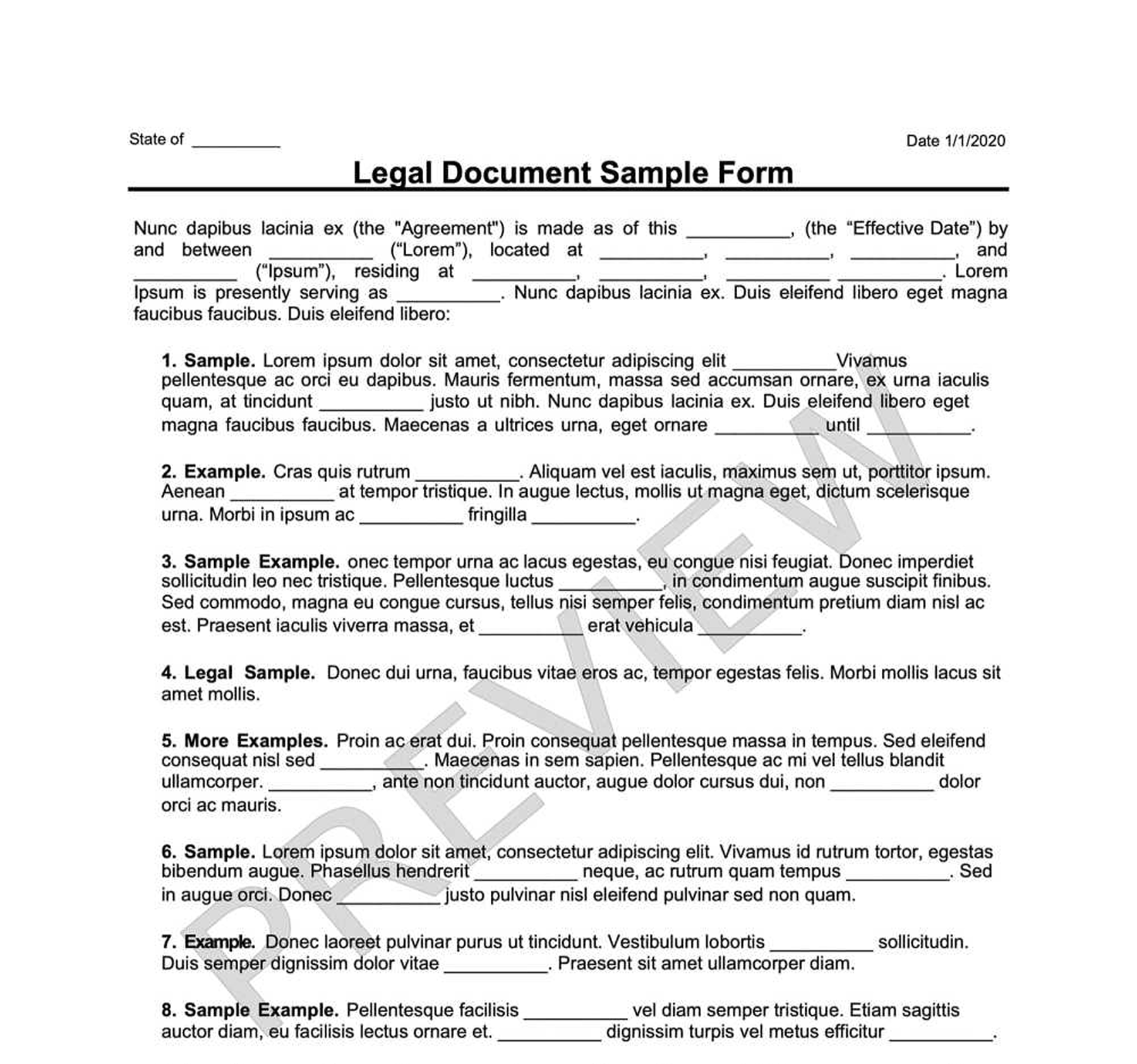Agreement Assignment
An Agreement Assignment is used to transfer a contractual party’s duties and obligations to someone else or another company.

How it Works
Build your selected document.
Answer a few simple questions with step-by-step instructions.
Print & download forms instantly. Sign & make it legal.
What Is a Agreement Assignment?
After you enter into an agreement with an independent contractor, what can you do if they're not able to finish everything on time? Or maybe you are the contractor – what can you do if you have to outsource the work?
You can use an Agreement Assignment to transfer the work in the original contract to another party. This is done, hoping your business partner will be satisfied and you don't have to breach an agreement.
What Is an Agreement Assignment?
If you sign a contractual agreement with a person or company and can't fulfill the obligations and duties contained within, you can assign the contract in whole or in part to another party. Sometimes it makes more sense for you to outsource the work or have someone else do the job.
In that event, you would use an Agreement Assignment to do that, wherein you are the assignor, and the other party is the assignee. The only caveat, which should be evident to all, is that the assignment must not harm the contract's original party.
Before that, you have to make sure the original agreement allows for subsequent reassignments. If not, you will have to get permission from the other party. In any event, you are still on the hook to deliver after the assignment. You will always be liable unless you can pass it on to the assignee, all of which you can negotiate in the contract.
Other Names for Agreement Assignment
Depending on your state, an Agreement Assignment may also be known as:
- Assignment and Assumption Agreement
- Assignment of Contract
- The Assignment of a Right or Obligation
- Contract Assignment Agreement
Who Needs an Assignment Agreement?
Not every party assigning work to another party will need an Agreement Assignment. However, if you have an agreement in place and you have to get out of it, you should use an Agreement Assignment. As mentioned, you can also use an Agreement Assignment to outsource the work if you are the independent contractor or to find another contractor to do the job if you are the hirer.
Why Use Swyft Forms for Your Agreement Assignment?
Customized for you, by you
Create your own documents by answering our easy-to-understand questionnaires to get exactly what you need out of your Agreement Assignment.
Specific to Your Jurisdiction
Laws vary by location. Each document on Swyft Forms is customized for your state.
How to Create an Agreement Assignment with Swyft Forms?
The best way to create an Agreement Assignment is to use a template.
Let Swyft Forms help with our extensive library of attorney-vetted legal forms. The process is fast and easy. All you have to do is fill out our easy-to-understand questionnaire. Once complete, simply download your form as a PDF or Word document from your secure online account.
What Information Will I Need to Create My Agreement Assignment?
To create your document, please provide:
- Original Contract Information: Reference the original contract, date, and purpose. You could attach the form if you wish.
- Assignor Information: The name and address of the individual transferring the contractual duties.
- Assignee Information: The name and address of the person receiving the contractual obligations from the assignor.
- Third-Party Information: The name and address of the other party in the original contract. You could state if the original agreement allows assignment.
- Extent of the Assignment: A full description of the duties being transferred. Describe if you are assigning the work in whole or in part.
- Indemnity Clause: A standard waiver that the assignee will not hold the assignor liable if anything happens during the performance of duties assigned.
- Consideration: Any benefits afforded the assignee for entering into the contract.
Agreement Assignment Terms
- Assignor: The party transferring obligations and duties to the assignee.
- Assignee: The party receiving responsibilities and tasks from the assignor.
- Consideration: Anything of value the assignee receives for signing the Agreement Assignment.
- Third-Party: In the context of an Agreement Assignment, the party entered into the original contract with the assignor.
An Agreement Assignment Signing Requirements
Before signing the Agreement Assignment, review it to make sure it is to your satisfaction. After that, both the assignor and assignee sign the document, but not the third party from the original contract.
What to Do with Your Agreement Assignment?
After signing the Agreement Assignment, both parties should receive a copy for safekeeping. Notarization is not required, nor do you need anyone to witness the signing of the signatures.
Other Names for Agreement Assignment
- Agreement Assignment Form
- Agreement Assignment Document
- Agreement Assignment Agreement
- Agreement Assignment Contract
- Agreement Assignment Template
- Agreement Assignment Checklist
Who Needs a Agreement Assignment?
Why Use Swyft Forms for Your Agreement Assignment
Customized for you, by you
Specific to Your Jurisdiction
Why choose Swyft Forms?
Create professional documents for thousands of purposes.
Make unlimited documents and revisions.
Our documents are vetted by lawyers and are applicable to all 50 states.
